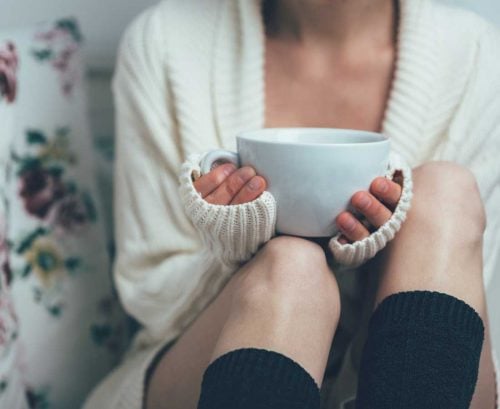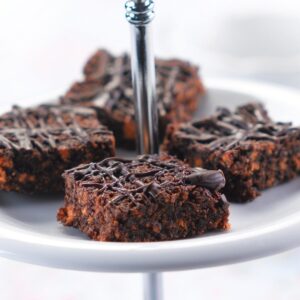
Sleep is essential for good health. Poor sleep quality, or not enough sleep, can negatively affect our mood, cognitive function, and immune system.
Stress can impact our sleep, and stress and anxiety associated with the COVID pandemic have meant many of us are not sleeping as well as we used to. A survey of 2,555 people across 63 countries found 47 per cent of people were experiencing poorer sleep than usual during the pandemic, compared with 25 per cent before COVID hit.
We also know stress is associated with poor dietary habits. People who are feeling stressed and tired may be more likely to reach for energy drinks and caffeinated beverages. But a high intake of caffeine as well as sugar-sweetened and energy drinks can keep us awake. So it’s something of a vicious circle
Similarly, people who are feeling stressed may be more likely to drink alcohol. Alcohol before bed, especially in excess, can also disrupt our sleep.
So what can you drink to improve your sleep?
Chamomile
Chamomile tea has been used in traditional medicine for centuries to treat a range of sleep ailments, such as insomnia.
The plant extract contains apigenin, a chemical compound that binds to the same receptors in the brain as benzodiazepines (drugs used to treat anxiety and insomnia), producing a sedative effect.
Studies have shown chamomile (consumed in the form of an extract or a tea) leads to significant improvement in sleep quality.
However, although the evidence is positive, these studies were relatively small and we need larger, well-designed clinical trials to reinforce these observations.
Milk
A warm cup of cow’s milk is a popular bedtime beverage in Western cultures, particularly for children.
Milk is a source of the essential amino acid tryptophan, which our bodies need to produce compounds including serotonin and melatonin in the brain. These compounds are involved in the sleep-wake cycle, which could explain why milk helps us sleep better — if indeed it does.
Scientists have studied the effects of milk and milk products (such as yogurt and cheese) on sleep quality for decades, but the evidence is still inconclusive.
It may simply be the ritual of drinking warm milk before bedtime that relaxes the brain and body, rather than the effects of compounds present in the milk itself. We’ll need more research evidence before we can be confident one way or the other.
Cocoa
Hot cocoa (commonly dissolved in milk) is also regarded as a sleep-promoting drink. The cocoa bean is a rich source of many beneficial chemicals, including compounds called flavonoids.
Flavonoids have a range of potential health benefits, and may be used to treat some neurodegenerative disorders.
There’s limited research on the effects of cocoa on sleep quality. But a study in mice suggested natural cocoa may improve stress-induced insomnia.
In humans, consuming cocoa is associated with a reduction in blood pressure (in healthy people and those with high blood pressure). This lowering of blood pressure, which relaxes the smooth muscles that line our arteries, could produce a calming effect, making it easier to go to sleep.
While these sleep remedies are unlikely to be harmful, the overall evidence on improvement in quality of sleep is weak. You may like to try them, but you shouldn’t see any of them as a quick fix.
At the end of the day, several lifestyle factors can influence our sleep quality, including screen time, physical activity, stress and diet.
If you are consistently struggling to sleep, it’s best to consult with your general practitioner.
This article is republished from The Conversation under a Creative Commons license. Read the original article.
Article sources and references
- Medic G, Wille M, Hemels ME. Short- and long-term health consequences of sleep disruption. Nat Sci Sleep. 2017;9:151-161. Published 2017 May 19. doi:10.2147/NSS.S134864https://www.ncbi.nlm.nih.gov/pmc/articles/PMC5449130/
- Luciana Besedovsky, et al. The Sleep-Immune Crosstalk in Health and Disease. Physiological Reviews 2019 99:3, 1325-1380https://journals.physiology.org/doi/full/10.1152/physrev.00010.2018?fbclid=IwAR2KNNRKpxCF8VXhxm6J-Pog5M_yDblBLxQwyzStvEIGut6LzQN8qWHo66I&
- Sleep health Foundation Annual Report 2020. Accessed February 2021https://www.sleephealthfoundation.org.au/files/pdfs/agm/SHF-AnnualReport-DRAFT_4_131020.pdf
- Lina Elsalem, et al. Stress and behavioral changes with remote E-exams during the Covid-19 pandemic: A cross-sectional study among undergraduates of medical sciences, Annals of Medicine and Surgery,Volume 60, 2020,Pages 271-279, https://doi.org/10.1016/j.amsu.2020.10.058.https://www.sciencedirect.com/science/article/pii/S2049080120304131
- Sean He, et al. Alcohol and sleep-related problems, Current Opinion in Psychology, Volume 30, 2019, Pages 117-122, https://doi.org/10.1016/j.copsyc.2019.03.007.https://www.sciencedirect.com/science/article/pii/S2352250X18302719?via%3Dihub#bib0070
- Salehi B, Venditti A, Sharifi-Rad M, Kręgiel D, Sharifi-Rad J, Durazzo A, Lucarini M, Santini A, Souto EB, Novellino E, Antolak H, Azzini E, Setzer WN, Martins N. The Therapeutic Potential of Apigenin. International Journal of Molecular Sciences. 2019; 20(6):1305. https://doi.org/10.3390/ijms20061305https://www.mdpi.com/1422-0067/20/6/1305/htm
- Komada Y, Okajima I, Kuwata T. The Effects of Milk and Dairy Products on Sleep: A Systematic Review. International Journal of Environmental Research and Public Health. 2020; 17(24):9440. https://doi.org/10.3390/ijerph17249440https://www.mdpi.com/1660-4601/17/24/9440/htm
- Katsutaka Oishi, et al. Dietary natural cocoa ameliorates disrupted circadian rhythms in locomotor activity and sleep-wake cycles in mice with chronic sleep disorders caused by psychophysiological stress, Nutrition, https://doi.org/10.1016/j.nut.2020.110751.https://www.sciencedirect.com/science/article/abs/pii/S0899900720300344
www.healthyfood.com










